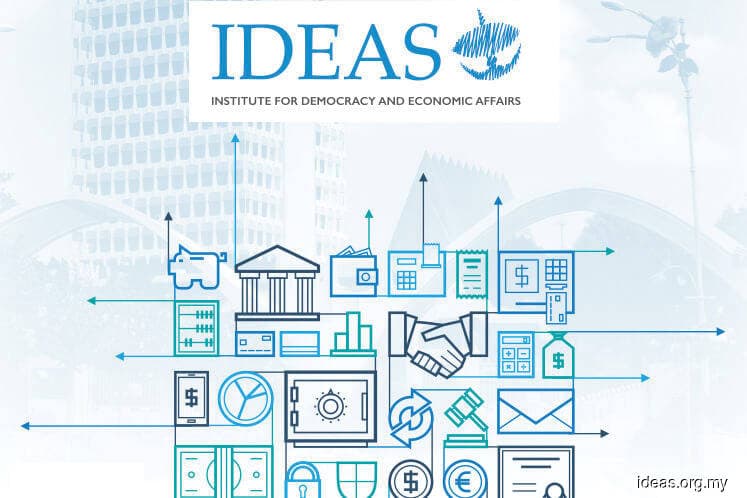
This article first appeared in The Edge Financial Daily on September 20, 2019
KUALA LUMPUR: The Institute for Democracy and Economic Affairs (IDEAS) has proposed that Putrajaya perform a review of government-linked companies (GLCs) to form the basis of a divestment strategy, which targets a gradual disposal of its shareholding in the GLCs to 10% of the companies’ total market capitalisation by 2030.
At present, the government has a large shareholding in listed GLCs, which account for more than 40% of the total market capitalisation of the Malaysian stock exchange. Moreover, Putrajaya holds a majority stake in more than 70 entities, pointed out IDEAS research director Laurence Todd.
“This high government presence creates concerns over competition and the lack of liquidity in Malaysia’s capital markets. We believe that the time has come to transition from this model,” Todd said yesterday at IDEAS’ public forum ahead of Malaysia’s Budget 2020 announcement on Oct 11.
Todd suggested that the first step is to clarify what the different objectives are across the GLCs given the various objectives at play including the desire for industrial development, achieving New Economic Policy goals, or purely investment returns.
“One of the challenges is that it is not always clear which investments were serving which objectives … The government can continue to support industrial development without having majority stakes in a whole bunch of different companies,” he said, adding that this can be achieved by using incentives, for instance.
Additionally, Todd said a government divestment strategy, where the investments are then reinvested in different markets, would be better in generating long-term returns and savings.
Also present at the forum was Setiawangsa member of parliament Nik Nazmi Nik Ahmad, who pointed out the government should focus more on regulation, rather than on companies.
“Where there are no strategic interests for the government to be in a particular sector, the government will still play a role through the regulators.
“For example, when we talk about aviation, we have the whole debate about MAS (Malaysia Airlines Bhd). Whether or not we (the government) should be there is a question, but where we should really empower is Mavcom (Malaysian Aviation Commission),” he said.
IDEAS’ Budget 2020 proposals include a new living wage tax credit, under which employers are incentivised but not required to increase wages up to a new monthly living wage of RM2,500 per employee.
To ensure that employees can share the wealth of the country, IDEAS said the government could use the establishment of an employee equity scheme.
Under this scheme, employers will be incentivised to allocate shares to employees, who will be encouraged to hold on to these assets rather than sell them for easy cash.
“We propose both these policies to be introduced in the forthcoming budget and recommend they be paid for through rationalisation of existing investment incentives,” said Todd.
On a broader scale to reduce the budget deficit, IDEAS suggested that a capital gains tax at an initial rate of 5% be introduced in the longer term, with a tax-free allowance of RM50,000.
“The government should launch a consultation on the introduction of this new tax in Budget 2020,” he added.
‘Rearranging deck chairs on the Titanic’
Professor Dr Jomo Kwame Sundaram, research adviser at Khazanah Research Institute, likened current debates surrounding the forthcoming national budget to “rearranging deck chairs on the Titanic”.
He stressed that the government needs to begin to think about what needs to be done as domestic demand poses a serious problem.
“An expansionary fiscal policy is now necessary. It would be prudent, not profligate. And the main reason for this is because if you stimulate the economy now, as the world economy deteriorates further, we will be better off. We won’t be able to avert the international economic recession, which is very likely to take place, but at least we would be slightly better off,” he said.
Jomo explained that fiscal consolidation being the public’s watchword is a discredited view, as theoretically, the less the public sector spends, the worse the recession becomes.
“Countercyclical fiscal policy has a greater role to play in economic stabilisation today. Monetary policy options are limited, and inadequate to challenge, and there are no good macroeconomic reasons to pursue austerity during downturns, recessions.
“Fiscal consolidation can and should be delayed under such circumstances. The risk of fiscal position worsening can be checked by growth from fiscal spending,” he said in his presentation.
However, he stressed that any fiscal spending should not be a measure solely to buffer short-term economic downturn, but to lay the foundations for medium-term economic development as well.